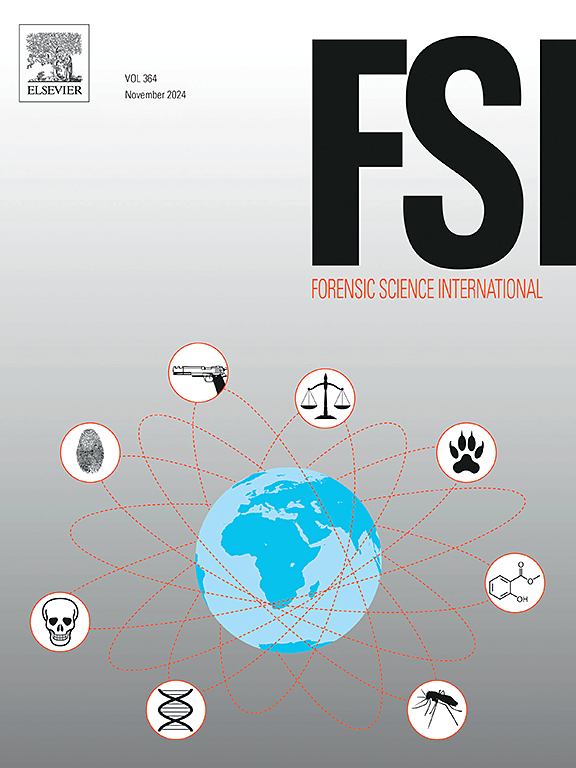FIGG at 5: An update on U.S. public perspectives on forensic investigative genetic genealogy five years after its introduction to criminal investigations
IF 2.2
3区 医学
Q1 MEDICINE, LEGAL
引用次数: 0
Abstract
In 2018, after law enforcement announced it had used a technique called forensic investigative genetic genealogy (FIGG) to identify the Golden State Killer, we conducted a U.S. general population survey and found most respondents supported using FIGG to solve violent crimes. Since then, FIGG has helped close hundreds of criminal cases, but it also has weathered controversies. On FIGG's fifth anniversary, we conducted an expanded, follow-up survey with U.S.-based participants to determine if public opinion had changed and found continued support for FIGG across most applications. The same proportion (91 %) of respondents in the 2018 and 2023 surveys endorsed using FIGG in genetic genealogy databases to help identify perpetrators of violent crimes. Similar to the 2018 survey, only 57 % of respondents supported FIGG to help identify perpetrators of non-violent crimes. The results indicate that U.S. policies that have been adopted for FIGG are generally consistent with the opinions of our survey respondents over time. Nonetheless, there are opportunities to strengthen FIGG governance with the goal of maintaining public trust in the technique.
图5:在引入刑事调查五年后,美国公众对法医调查基因谱系的最新看法。
2018年,在执法部门宣布使用一种称为法医调查基因谱系(FIGG)的技术来识别金州杀手之后,我们进行了一项美国普通人口调查,发现大多数受访者支持使用FIGG来解决暴力犯罪。从那以后,FIGG帮助结案了数百起刑事案件,但它也经受住了争议。在FIGG成立五周年之际,我们对美国的参与者进行了一次扩展的后续调查,以确定公众意见是否发生了变化,并发现大多数应用程序都继续支持FIGG。在2018年和2023年的调查中,同样比例(91 %)的受访者支持在遗传家谱数据库中使用FIGG来帮助识别暴力犯罪的肇事者。与2018年的调查类似,只有57% 的受访者支持FIGG帮助识别非暴力犯罪的肇事者。结果表明,随着时间的推移,美国为FIGG所采取的政策总体上与我们的调查受访者的意见一致。尽管如此,仍有机会加强FIGG治理,以保持公众对该技术的信任。
本文章由计算机程序翻译,如有差异,请以英文原文为准。
求助全文
约1分钟内获得全文
求助全文
来源期刊

Forensic science international
医学-医学:法
CiteScore
5.00
自引率
9.10%
发文量
285
审稿时长
49 days
期刊介绍:
Forensic Science International is the flagship journal in the prestigious Forensic Science International family, publishing the most innovative, cutting-edge, and influential contributions across the forensic sciences. Fields include: forensic pathology and histochemistry, chemistry, biochemistry and toxicology, biology, serology, odontology, psychiatry, anthropology, digital forensics, the physical sciences, firearms, and document examination, as well as investigations of value to public health in its broadest sense, and the important marginal area where science and medicine interact with the law.
The journal publishes:
Case Reports
Commentaries
Letters to the Editor
Original Research Papers (Regular Papers)
Rapid Communications
Review Articles
Technical Notes.
 求助内容:
求助内容: 应助结果提醒方式:
应助结果提醒方式:


